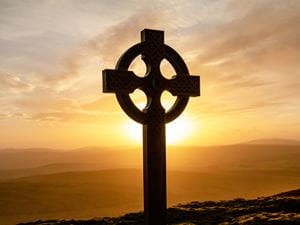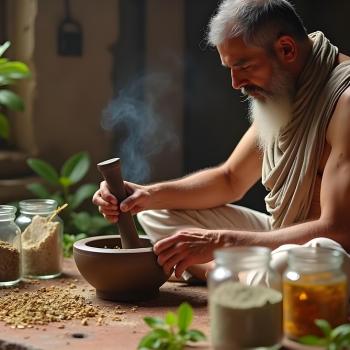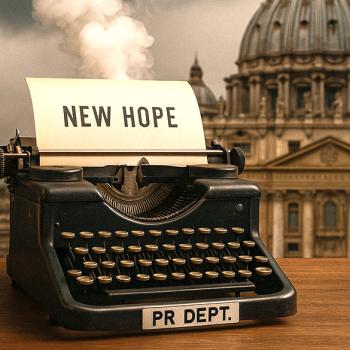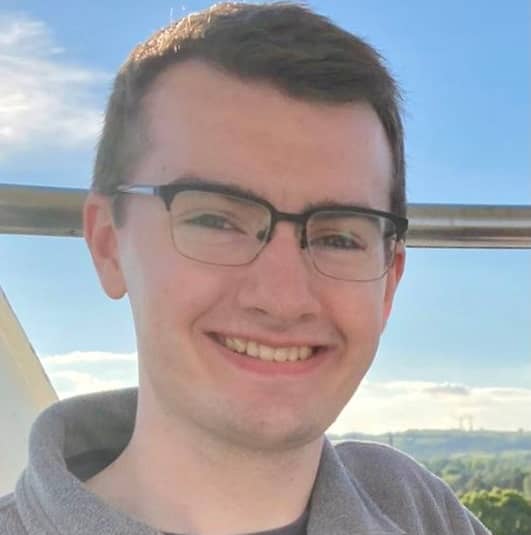
Politics is never simple. In the place I proudly call home, Northern Ireland, politics is messier than a lidless blender: one filled with pickled herrings, pointed at our faces, and switched on.
Once in a while, when political earthquakes happen, the blender will tip over and intercontinentally blow chunks over the news of other countries. You know, for instance, that when CNN, The Washington Post and NBC News all sniff out a Northern Ireland story, like they did in February, then something is afoot.
February 2024 will, no doubt, be remembered as a significant month in our history; Michelle O’Neill, vice-president of Sinn Féin, became the first Irish republican First Minister of Northern Ireland. This represented a gargantuan shift; all of O’Neill’s predecessors were British unionists.
Ideology has often gone hand in glove with religion here, as international audiences will recall. ‘It is known,’ as the Dothraki say. CNN journalist, Amy Cassidy writes: ‘The Good Friday Agreement of 1998, which brought an end to decades of sectarian violence between pro-republican Catholics and pro-unionist Protestants – a period known as “The Troubles” – stipulates that both communities have equal powers in government and institutions.’ There are, and always have been, pro-republican Protestants and pro-unionist Catholics, too; but, even today, these matchups defy convention.
Consider this Guardian headline from 2022: ‘Catholics outnumber Protestants in Northern Ireland for the first time,’ it reads. ‘The demographic tilt was expected but will still deliver a psychological hit to unionists,’ writes Rory Carroll, ‘who for decades relied on a supposedly impregnable Protestant majority to safeguard Northern Ireland’s position in the UK.’ One begins to see why the beloved phrase of our media commentariat around election time is the ‘sectarian headcount.’
I myself am a stereotypical pro-union Protestant, who gladly presents his gorgeous cranium every four years to be numbered in the ‘sectarian headcount’. I don’t see democratic participation as a religious act or unionist votership as a Protestant act; rather, it’s a sense of loyalty to the country with which I most identify, the United Kingdom, which guides my pencil in the polling booth.
(Sidenote: it astonishes me when über-liberal Americans equate voter ID rules with voter suppression; we’ve had photographic identity checks in this country for over two decades!)
I should say that while we have a two-tradition system, we don’t have a simple two-party system. There are two main choices for Irish republicans: the Social Democratic Labour Party (SDLP) and Sinn Féin. There are also two main choices for British unionists: the Ulster Unionist Party (UUP) and the Democratic Unionist Party (DUP). Then there’s Alliance, a catch-all party with no settled position on the British-Irish ‘constitutional question,’ as we delicately call it.
Few parties use overtly religious imagery, though the DUP – whose founder, Ian Paisley, was an evangelical minister – has many members who hold a Christian worldview. Party leader, Sir Jeffrey Donaldson, a man of deep faith, is never seen without an ichthys (‘Christian fish’) in his lapel. DUP meetings typically begin with prayers, which are said on behalf of members by the branch or association chaplain. Before 1971, the DUP was known as the Protestant Unionist Party.
Christian denominations, as in every jurisdiction, are keen to be perceived as heavy hitters in the public square. Indeed, the Church of Ireland (Anglican) Bishop of Down and Dromore produced a YouTube series last month, Issues We Face Today, which I have… opinions about! All the Churches, both Catholic and Protestant, regularly publish press releases on political issues whenever the public wants to hear their views (and oftentimes when the public doesn’t!)
Clergymen and -women are still very much involved, as they have been for many decades, in peace-building work. See, for example, The Four Corners Festival: an annual programme with a Christian ethos, which aims to familiarise Protestants with Catholic-majority communities, and vice versa, within Belfast and hopefully build healthy community relations in the process.
As you may have gathered by now, folks here use the terms ‘Protestant’ and ‘Catholic’ in a distinctive local sense, with connotations that encompass not just a person’s faith. In the common parlance of Northern Ireland, a ‘Protestant’ is less often an adherent of Reformation principles than a ‘British unionist.’ Likewise, a ‘Catholic’ is not so much a person in communion with Rome as an ‘Irish republican’ or an ‘Irish nationalist’: another pair of words with a very fine distinction!
When it comes to specific issues where the religious divide rumbles on, policing is a big one. Historically, Northern Ireland’s various police forces – the Royal Ulster Constabulary (RUC, 1922-2001) and the Police Service of Northern Ireland (PSNI, since 2001) – have had an overwhelmingly Protestant makeup. Despite affirmative action policies to recruit more Catholics into the bottle green uniform, this remains the case.
Republican leaders, due to historical allegations of anti-Catholic sectarianism within the RUC, have often been lukewarm towards the police. It was less than two decades ago that Sinn Féin gave its official backing to the PSNI. Times, however, have changed; as one of her first engagements in the top job, O’Neill attended a graduation ceremony for new PSNI recruits. No Sinn Féin politician had ever done so. This will, hopefully, have broken down barriers for prospective Catholic officers.
Another battleground is education. In this part of the UK, we have many different categories of school: integrated (mixed religion); grammar and special needs (demographics vary); state-controlled (attendance largely Protestant); and Catholic-maintained (attendance mostly Catholic, naturally).
Because the unionist electorate is largely Protestant and republican voters are mostly Catholic, unionism has a big electoral stake in the quality provision of state-controlled education while the republican parties have an incentive to focus on the Catholic-maintained system. As to whether politicians actually do favour their own communities in practice, I reserve judgement!
All told, religion still plays a sizeable part in the politics of Northern Ireland albeit a much smaller one than in the past. Whereas it used to be far more pervasive, religious belief crops up here in politics today with regards only, really, to policing and education. Unlike in the volatile 1960s, disparities in housing and employment are no longer causes of religious conflict.
And so, whoever is up in the polls and whoever is down, let’s be thankful for the progress we’ve made three decades on from the 1994 Provisional IRA ceasefire. I’m hopeful that, in time, we will overcome the problems which remain and find our way towards a more unified society.
3/15/2024 3:54:30 PM





